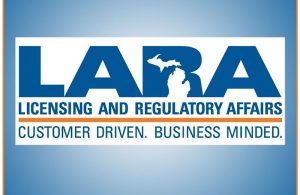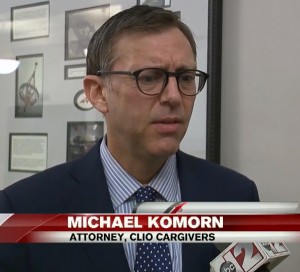
LARA-Medical Marihuana Regulation – House Bill 4209-HB4827 and HB4210-FAQ
FREQUENTLY ASKED QUESTIONS
When can I apply for my license?
After December 15, 2017.
What does the Medical Marihuana Licensing Board (“the board”) do?
The Medical Marihuana Licensing Board is comprised of 5 members, appointed by the Governor (with input from the Senate Majority Leader and the Speaker of the House), to administer the Medical Marihuana Facilities Licensing Act. This includes reviewing applications, issuing licenses, revoking/suspending licenses, renewing licenses, and investigating individuals who are applying for licensure or complaints received about someone who holds a license.
What are the different licenses I can apply for?
You may apply for the following licenses:
Grower
Processor
Transporter
Provisioning Center
Safety Compliance Facility
What costs are associated with a license?
Payment to secure transporters for transferring marihuana, as needed;
Annual, nonrefundable fee (of up to $5,000) to be set by, and paid to, your local municipality.
These fees are used to offset administrative and enforcement costs associated with the operation of a marihuana facility in the municipality;
An application fee per category and class of license;
Investigation and processing fees not covered by the application fee;
An annual regulatory assessment fee;
A renewal fee;
Late fees if renewal fee is not paid on time;
Provisioning centers will pay 3% on gross retail receipts
Does my municipality have any involvement with my license?
Yes, a municipality (city, township or village) has the following involvement:
Must pass an ordinance which authorizes the type of facility you wish to open;
May limit the number of each type of facility within the municipality’s boundaries;
Any other ordinances relating to marihuana facilities;
May adopt zoning regulations relating to facilities within its jurisdiction;
The municipality must receive notice from you that you have applied for any one of the five licenses;
May establish an annual fee to be paid by you; the fee can be as much as $5,000.00;
Must approve your request to have your license transferred, sold or purchased.
Does my criminal history prevent me from obtaining a license?
It depends on whether the following are true:
The applicant is ineligible if he or she has been convicted of or released from incarceration for a felony under the laws of this state, any other state, or the United States (federal law) within the past 10 years or has been convicted of a controlled substance-related felony within the past 10 years.
The applicant is ineligible if he or she has been convicted of a misdemeanor involving a controlled substance, theft, dishonesty, or fraud in any state within the past 5 years.
The applicant is ineligible if he or she has been found responsible for violating a local ordinance in any state involving a controlled substance, dishonesty, theft, or fraud that substantially corresponds to a misdemeanor in that state within the past 5 years.
The Board may take into consideration the following:
Whether the applicant has been indicted for, charged with, arrested for, or convicted of, pled guilty or nolo contendere to, forfeited bail concerning, or had expunged any relevant criminal offense under the laws of any jurisdiction, either felony or misdemeanor, not including traffic violations, regardless of whether the offense has been expunged, pardoned, or reversed on appeal or otherwise.
What prohibits a person from obtaining a license?
An applicant cannot obtain a license if any of the following is true:
The applicant is ineligible if he or she has knowingly submitted an application for a license under this act that contains false information.
The applicant cannot be a member of the Medical Marihuana Licensing Board.
The applicant is ineligible if he or she fails to demonstrate the ability to maintain
adequate premises liability and casualty insurance for its proposed marihuana facility (an insurance policy that covers at a minimum of $100,000).
The applicant cannot hold an elective office of a governmental unit of this state, another state, or the federal government; is a member of or employed by a regulatory body of a governmental unit in this state, another state, or the federal government; or is employed by a governmental unit of this state. This subdivision does not apply to an elected officer of or employee of a federally recognized Indian tribe or to an elected precinct delegate.
The applicant, if an individual, is ineligible if he or she has been a resident of this state for less than a continuous 2-year period immediately preceding the date of filing the application. This requirement does not apply after June 30, 2018.
The applicant is ineligible if the Board determines he or she failed comply with section 205(1).
The applicant fails to meet other criteria established by rule.
The applicant is ineligible if he or she has been convicted of or released from
incarceration for a felony under the laws of this state, any other state, or the United States (federal law) within the past 10 years or has been convicted of a controlled substance-related felony within the past 10 years.
The applicant is ineligible if he or she has been convicted of a misdemeanor involving a controlled substance, theft, dishonesty, or fraud in any state within the past 5 years.
The applicant is ineligible if he or she has been found responsible for violating a local ordinance in any state involving a controlled substance, dishonesty, theft, or fraud that substantially corresponds to a misdemeanor in that state within the past 5 years.
What other things may potentially prevent an applicant from getting approved for a license?
The Board may take into consideration the following:
The integrity, moral character, and reputation; personal and business probity; financial ability and experience; and responsibility or means to operate or maintain a marihuana facility of the applicant and of any other person that either:
Controls, directly or indirectly, the applicant.
Is controlled, directly or indirectly, by the applicant or by a person who controls, directly or indirectly, the applicant.
The financial ability of the applicant to purchase and maintain adequate liability and casualty insurance.
The sources and total amount of the applicant’s capitalization to operate and maintain the proposed marihuana facility.
Whether the applicant has filed, or had filed against it, a proceeding for bankruptcy within the past 7 years.
Whether the applicant has been served with a complaint or other notice filed with any public body regarding payment of any tax required under federal, state, or local law that has been delinquent for 1 or more years.
Whether the applicant has a history of noncompliance with any regulatory requirements in this state or any other jurisdiction.
Whether at the time of application the applicant is a defendant in litigation involving its business practices.
Whether the applicant meets other standards in rules applicable to the license category.
Whether the applicant has been indicted for, charged with, arrested for, or convicted of, pled guilty or nolo contendere to, forfeited bail concerning, or had expunged any relevant criminal offense under the laws of any jurisdiction, either felony or misdemeanor, not including traffic violations, regardless of whether the offense has been expunged, pardoned, or reversed on appeal or otherwise.
Where can I find more information on each type of license?
Details on each license category can be found in Part 5 of the Michigan Medical Marihuana Facilities Licensing Act, 2016 PA 281.
See- http://legislature.mi.gov/doc.aspx?mcl-281-2016-PART-5-LICENSEES
https://komornlaw.com/wp-content/uploads/2017/03/LARA-Marihuana-Act-HB4209-HB4827-HB4210-Frequently-Asked-Questions.pdf
For more information visit these sites
More Info Regarding House Bills





